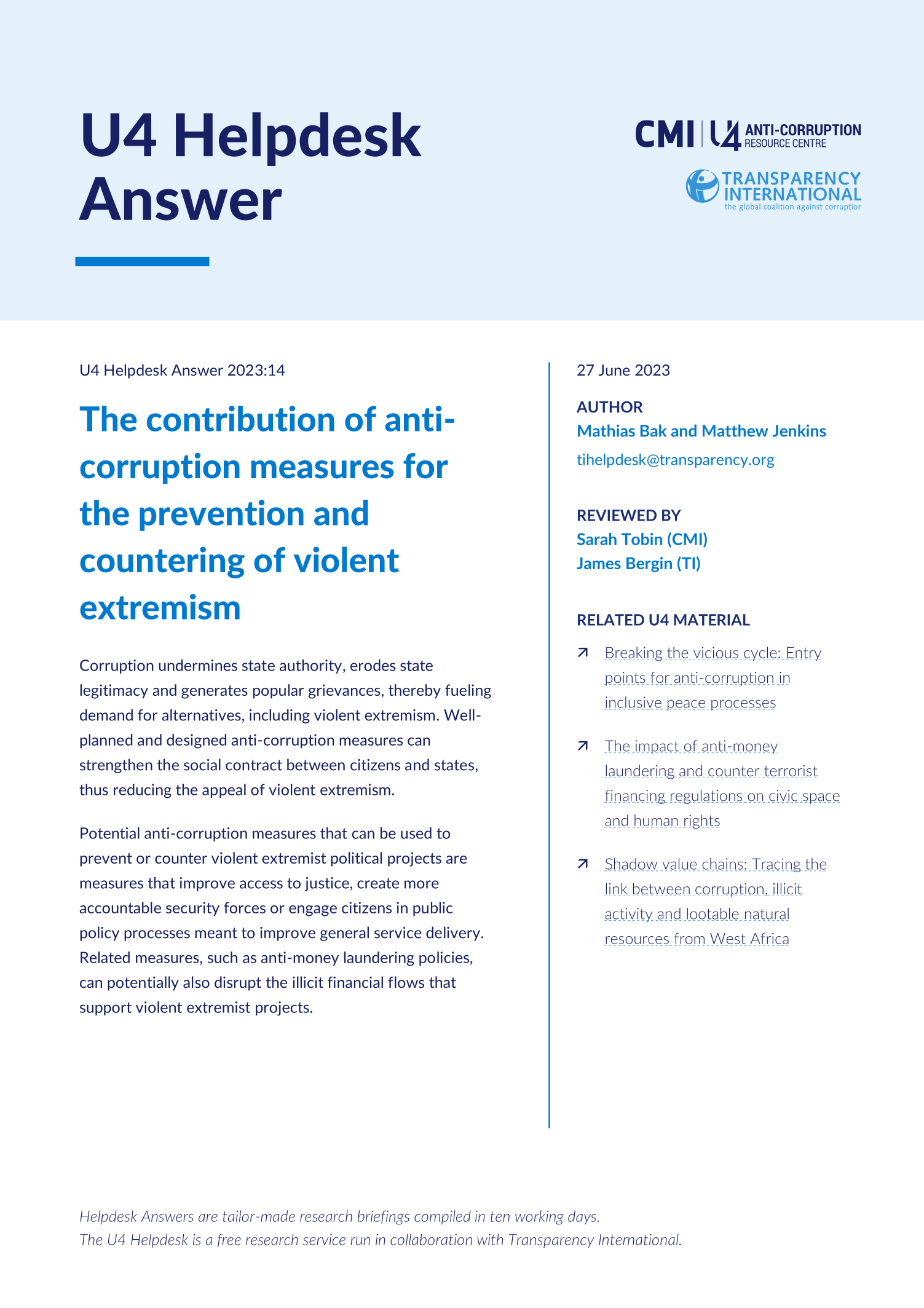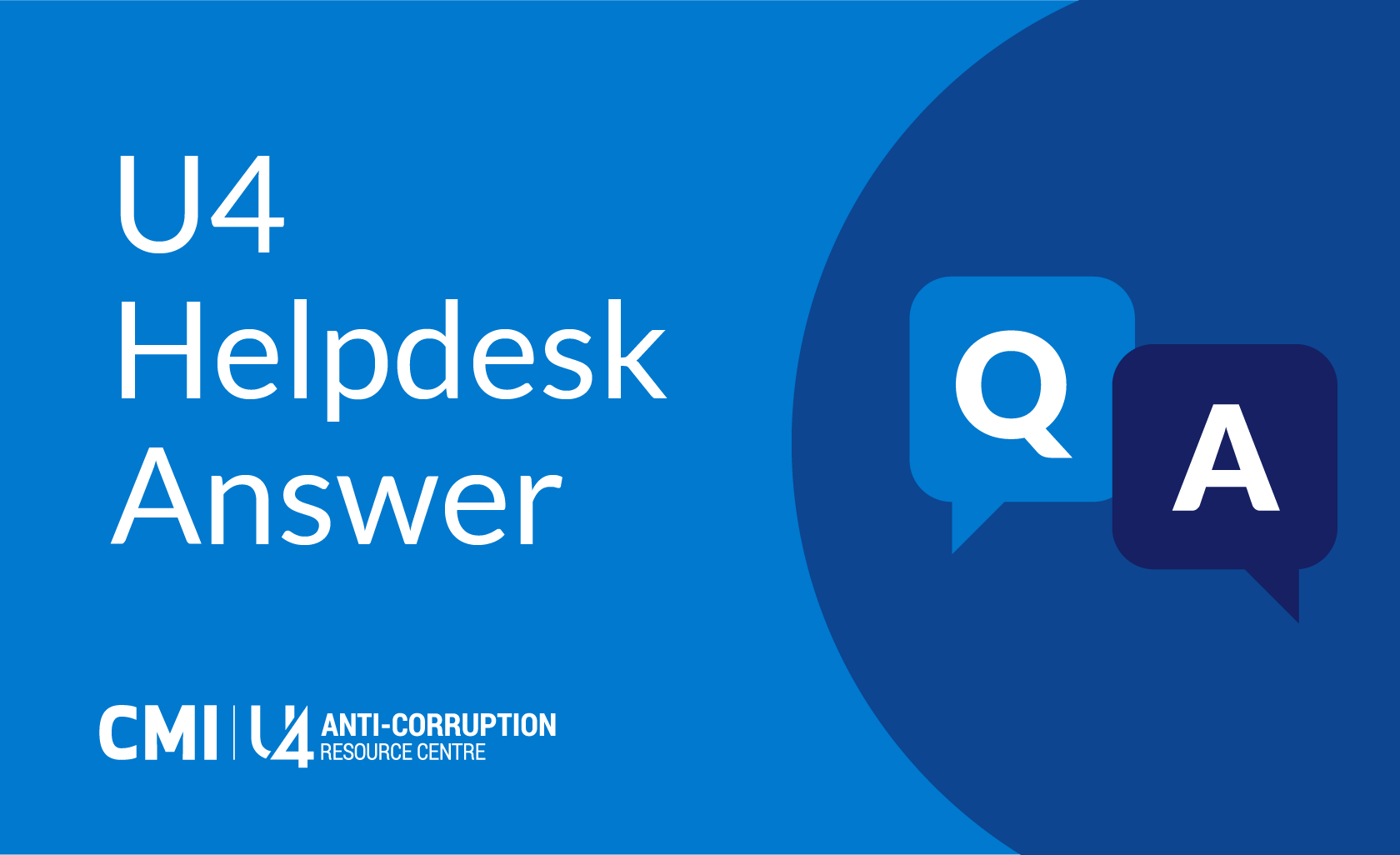Main points
- Efforts to prevent violent extremism must look to provide solutions that tackle the root causes of the phenomenon, including underlying popular grievances that facilitate violent extremists’ recruitment, as well as targeting the symptoms such as acts of violence or insurrection.
- Corruption is a significant grievance that undermines state authority and legitimacy, as well as the social contract between state and citizen.
- Anti-corruption initiatives can strengthen citizenship engagement, accountability and help rebuild trust between authorities and communities.
- Anti-corruption measures designed to reduce violent extremism should address hostility towards state authorities generated by corrupt abuses of power.



